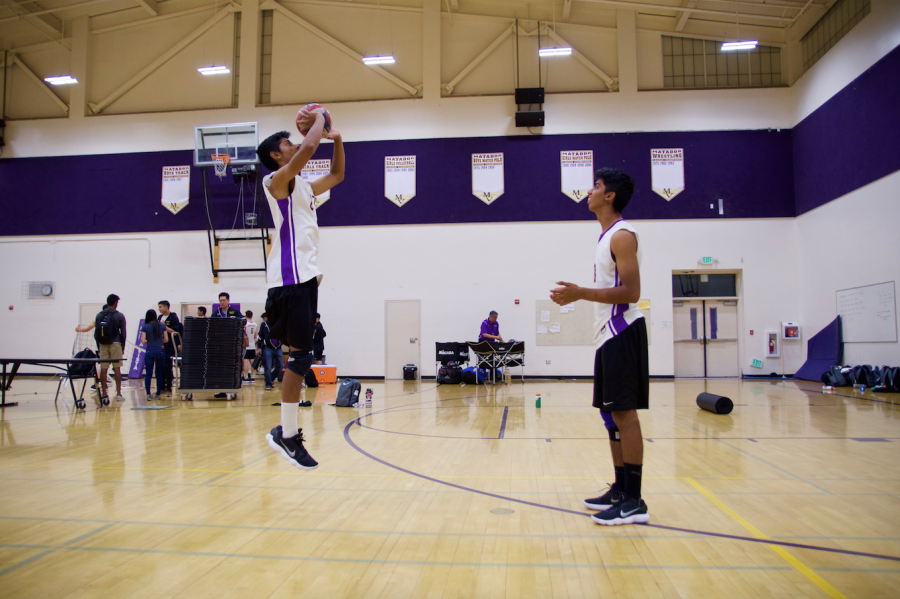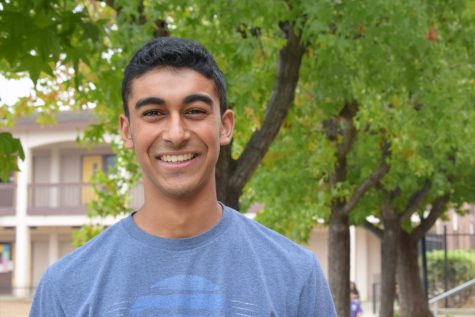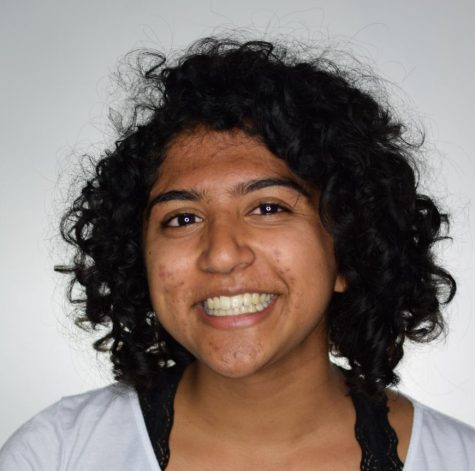Double Take: Twins explain the impact of their relationship on athletics
April 11, 2018
ince senior twins Priyanka and Rupali Sujan were three, they’ve had a tiny basketball hoop in their house. They recall much of their childhood being spent with some sport or the other, and even now, sports are one thing they have in common.
For these three sets of twins, who picked up their respective sports together at an early age, there is the additional bond of being family that allows them to excel in their athletic endeavors.
Priyanka and Rupali consider themselves to have been very athletic children, having played a variety of sports — soccer from age five to eight, swimming from third to eighth grade, volleyball in seventh and eighth grade, track in middle school and basketball in high school. Both of them played on the MVHS basketball team their freshman and sophomore years, neither played junior year and Priyanka played again as a senior.
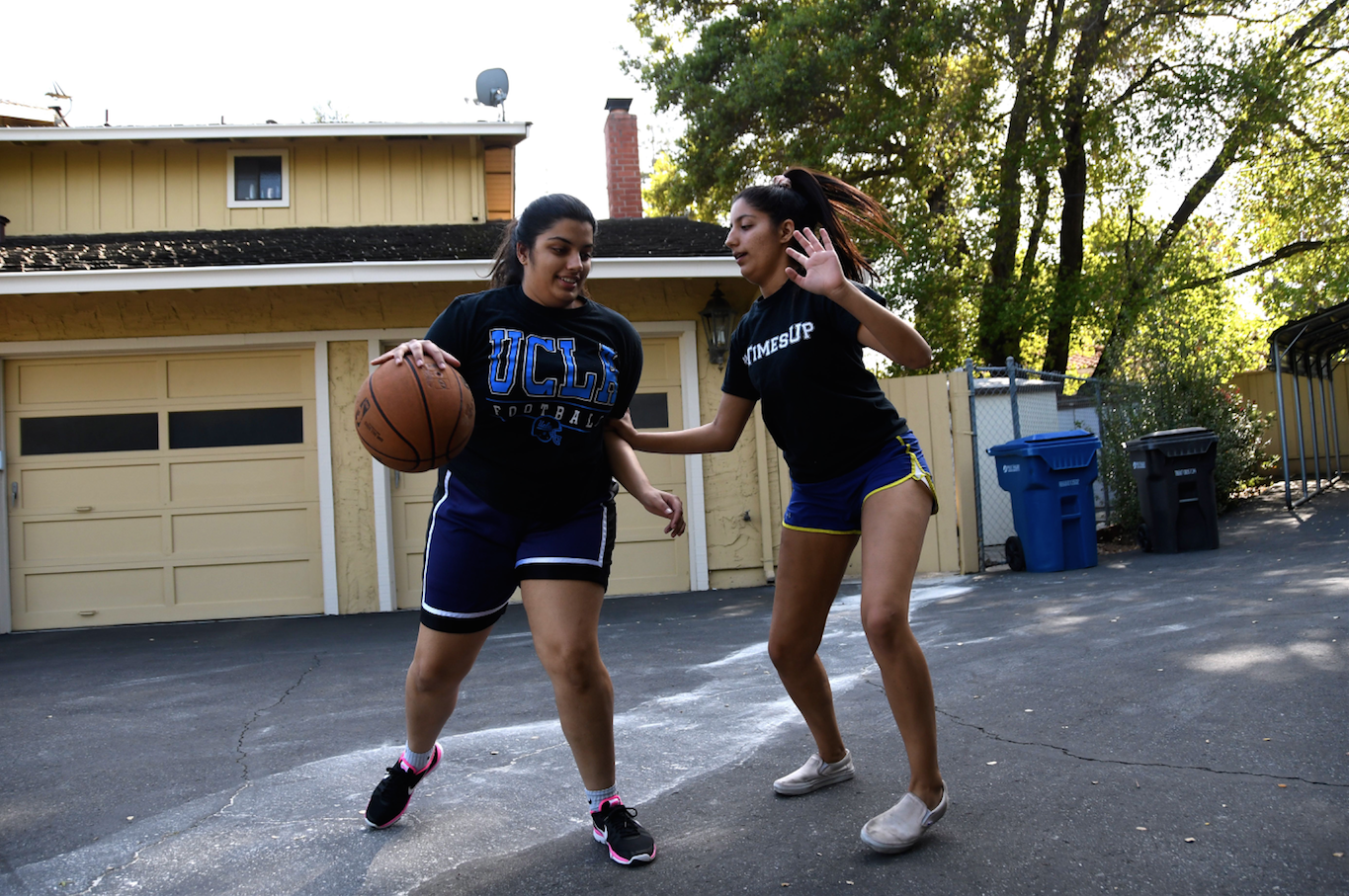
Rupali and Priyanka don’t play the same position — Rupali is a post player whereas Priyanka plays various guard positions — but they still have a competitive relationship where they try to help each other to improve.
“We argue a lot about who’s better, and it always comes down to the positions we play because we play completely different [positions],” Rupali said. “[However,] the reason we do push each other is because we play different types of basketball, [and] I teach her how to be better against post players and she helps me be faster because defending a guard is a different game.”
Similarly, juniors Adarsh and Apoorv Pachori play different positions on the MVHS volleyball team. According to Adarsh, he and Apoorv don’t fight too much in general, which to them means that they don’t compare themselves to each other excessively. When they do, it is more encouraging than detrimental to their performance on the court.
“I think [having a twin] is very encouraging actually. It encourages competition between the two of you,” Adarsh said. “If one person gets something, the other twin just wants to do it better, so it kind of helps you to get better, a lot better and a lot faster too.”
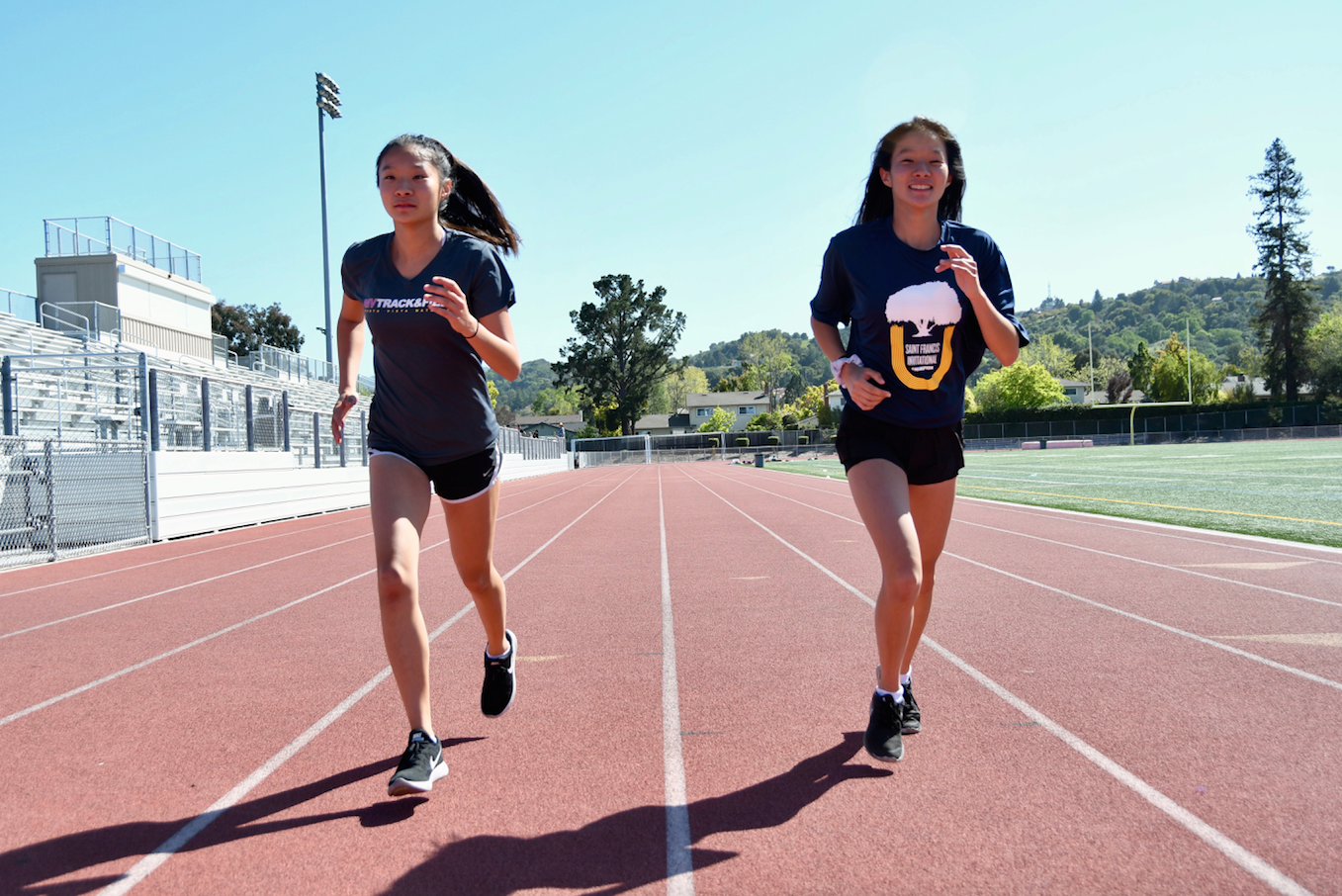
Freshmen Brooke and Bianca Young have a competitive relationship, describing themselves as opponents constantly trying to beat one another. Unlike the Pachori twins, they fight a fair amount. They say it’s typically about “dumb stuff” like homework that they may or may not have done.
Much of their dad’s family plays tennis, so it was natural for them to start the sport when they were about two years old. They’ve been playing competitively since they were seven and were on the MVHS varsity team this year. Their sibling rivalry motivates them to become better athletes.
“We always try to beat each other,” Brooke said. “So I have to try to beat her, and she’s always trying to beat me, so I think that we’re [playing] at our best level.”
In addition, unlike other twins who may play separate positions, or aren’t always directly interacting, Brooke and Bianca sometimes play doubles in tennis. When they compete in doubles together, their communication and drive to succeed come naturally.
“The other people [that I’ve played doubles with] they don’t really communicate and they’re just like ‘oh it’s okay,’” Brooke said. “When we’re together, it’s usually more competitive.”
Brooke and Bianca joined the track and field team this year because their P.E. teacher in middle school told them that they should try it out. They couldn’t find time for another sport with their rigorous tennis schedule before, but in their first year of high school, Brooke and Bianca decided to join the team. The competitive nature of their relationship continued in their new sport. Brooke’s best time is from a race in which she was running alongside Bianca. But they admit that there are different ways they approach competition.
“I think we’re a team, so usually we push each other to do better,” Bianca said.
“Or we’re opponents and trying to beat each other,” Brooke said. “[It’s] competitive.”
For the Sujan twins, it’s become routine to hold each other accountable, more so than they would with other friends.
“You don’t necessarily want to call [other friends] out or give them tips for improving because it might mess up your friendship,” Priyanka said. “Sometimes people take it really personally.”
As twins, the Sujans say that they can count on one another for advice or tips for improvement. Celebrating a nail-biting victory or mourning a tough loss is the extent of a relationship between regular athletes, but for twins, it doesn’t end just with the game or the meet. They go home and live together, continuing to develop their relationship.
“It’s like friendly competition in a way because you always want to one-up each other and being a twin is kind of special because they are basically going through the exact same thing as you in terms of life,” Priyanka said. “Getting to share a sport with [that] person is pretty cool.”


